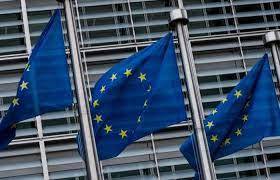EU unveils reform of bank bailout rules to protect taxpayers

Stay tuned with 24 News HD Android App

The EU unveiled long-awaited measures Tuesday to shield taxpayers from the bill for bank bailouts, acting with renewed urgency after recent turmoil in the US and European banking sectors.
Under the proposals, troubled medium-sized and smaller banks will be encouraged to use funds from the financial sector instead of public money, the European Commission, the EU's executive arm, said.
The EU was under pressure to act fast after three US banks failed last month and the merger of Swiss investment banking giant Credit Suisse with its regional rival UBS.
"Recent failures of some US and Swiss banks and resulting stress in the international banking sector are just a reminder of why we need a strong functioning system to deal with all banks whatever the size when they get into trouble," Valdis Dombrovskis, commission executive vice president, told a news conference in Strasbourg.
Brussels' aim is to stop member states ploughing taxpayers' money into mid-size lenders and to force banks to build up their own reserves.
Previously, mid-size banks found it difficult to access resolution schemes funded by the banking sector, meaning depositors would take a hit above levels guaranteed by deposit insurance programmes.
The new proposal says they could use funds from national deposit schemes as a "bridge" to meet the levels needed to trigger resolution schemes, helping reduce the risk of panic spreading and triggering bank runs.
"Let me stress the first and main line of defence in such crisis must be banks' internal capacity to absorb losses," Dombrovskis said.
The European Parliament and the 27 EU member states must approve the latest proposals but there will likely be tough opposition from northern countries including Germany.
Berlin has concerns over the impact of the EU's plans on its own protection schemes for lenders like cooperative banks.
Banking union drama
Tuesday's measures are however not a direct response to the recent turbulence.
They are part of the EU's bid to complete a banking union that has stalled for years since its creation in 2014.
Brussels launched a radical overhaul of banking supervision after the 2008 financial crisis and the subsequent eurozone debt crisis.
During the crises, billions of euros from taxpayers were spent on bailing out banks.
There has been a tussle over the last pillar of the banking union: an EU-wide deposit insurance scheme, and Germany, Europe's biggest economy, is vehemently opposed.
The scheme did not feature in the reforms and the commission said it was still pending.
Germany and other EU countries fear they will be forced to pay for fellow member states' bank failures under such a scheme.
The reforms will only be the latest source of tension between Berlin and Brussels.
Leading car manufacturer Germany last month blocked a landmark deal at the 11th hour to ban new sales of fossil fuel cars from 2035 but gave the green light after further talks.
